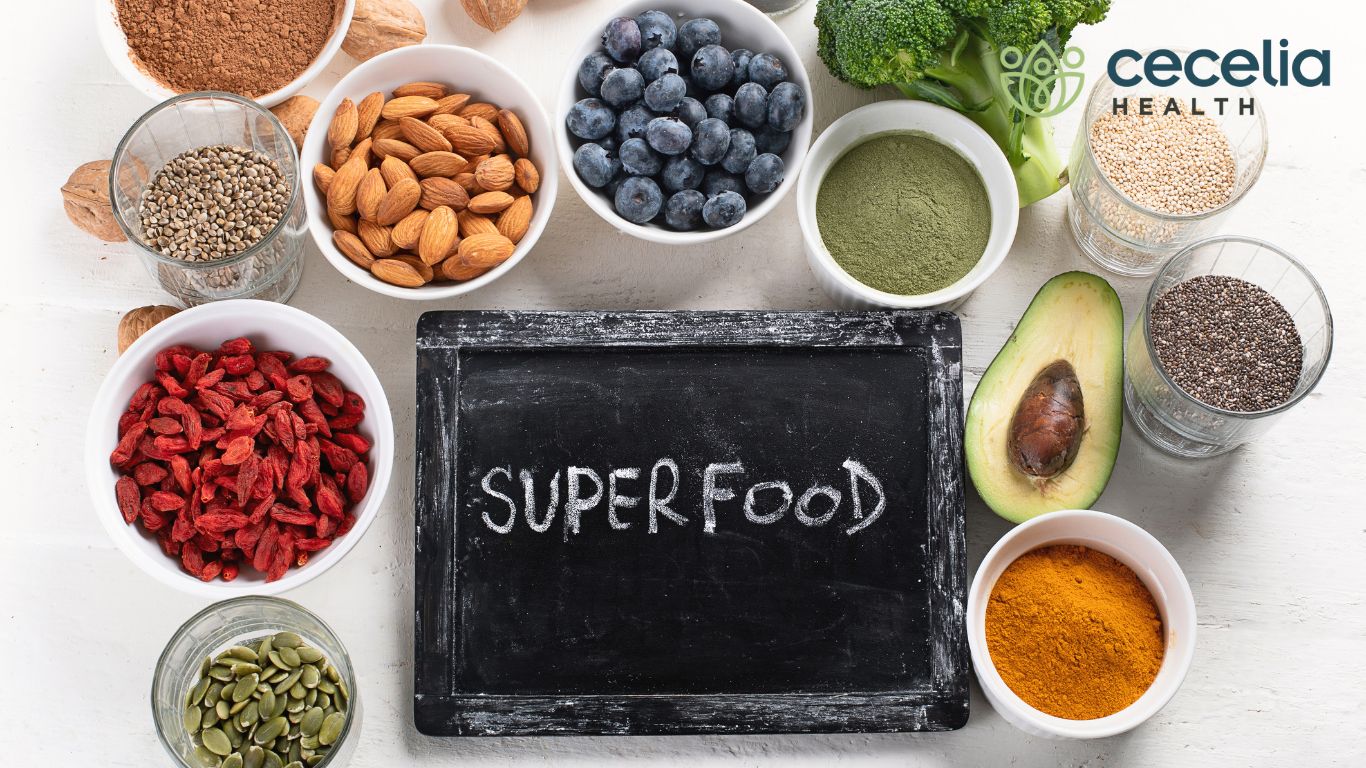“Superfood” is a term that has become common to refer to certain foods with claimed “mega benefits” for your health. While the Food and Drug Administration does not have an official definition of what a superfood is, it is true that these 6 Spring fruits and veggies are not only delicious, but also jammed packed with important nutrients for a healthy body!
1. Asparagus: Asparagus has long been used in the culinary arts due to its delicious flavor; but did you know that this tasty vegetable is also great for your health?! It is packed with vitamins and minerals like vitamins A, C & K, folate, potassium and riboflavin. The potential health benefits vary from preventing constipation to lowering blood pressure levels. It may also be beneficial to pregnant mothers and unborn babies in the womb as it contains folate, a vital nutrient for baby’s development! Asparagus can be enjoyed many ways including raw, baked, steamed, grilled or sauteed! Check out this asparagus recipe with lemon sauce for your next dinner party!
2. Strawberries: You may think of strawberries as an iconic summer fruit, but certain varieties can actually be harvested and enjoyed as early as February depending on where you live. Strawberries are naturally sweet, yet the average serving of 8 medium berries is only 50 calories and contains high amounts of potassium, fiber, and even 160% of the recommended daily value of vitamin C! For these reasons, strawberries are being studied for their potential benefits in cancer prevention, boosting memory and strengthening the body’s immune system! Berries, including strawberries, are low in sugar which makes them a great option for individuals with diabetes or anyone following a low carb diet. Enjoy them plain, in cereal, on yogurt, in salads or try this smoothie recipe for a delicious and guilt-free breakfast!
3. Kale: Of course, we can’t talk about superfoods without mentioning kale, but in reality, we could include all the green leafy vegetables! Greens like kale, spinach, swiss chard, etc. typically prefer cooler weather and may even be able to be grown year-round in some climates. Health experts recommend 5 servings/day of vegetables, including green leafy ones. Kale provides valuable nutrients like fiber, protein, antioxidants and is a great source of iron and vitamin K! A normal serving is about 1 cup raw or ½ cup cooked. Here is a yummy-looking, vegetarian recipe using kale!
4. Grapefruit: Grapefruit is another fruit that is low in sugar but contains excellent amounts of fiber and vitamin C! The fiber content means it can provide benefits to both digestive and heart health, even assisting in lowering cholesterol levels. And vitamin C is well known for its immune boosting properties to help you fight off viruses and bacteria that can cause diseases. If you have a goal to include more fresh fruits and vegetables (like grapefruit) in your diet, it can be helpful to have them prepped and accessible for easy snacking. Consider having a grapefruit somewhere visible, like sitting out on your dining table or kitchen counter. Or if you prefer it chilled, maybe peel a grapefruit and have it ready-to-go in an air-tight container on the top shelf in your refrigerator!
5. Broccoli: Broccoli is a versatile, low-carb vegetable with healthy amounts of protein and fiber. It also contains important vitamins and minerals like iron, vitamin C and vitamin K, along with potassium, magnesium, and calcium! It can make a very satisfying snack when eaten raw (try it with hummus!) and can also be cooked. This “Broccoli Beef Stir-Fry” is sure to be a family favorite!
6. Beets: Beets are a nutrient-filled vegetable that are best grown during the cool seasons, either Spring or Fall. They contain many of the vital nutrients that our bodies need like protein, fiber, folate, manganese, copper, potassium, magnesium and iron. Potential health benefits include lowering blood pressure (if consumed regularly over time), lowering inflammation to improve conditions like arthritis, as well as promoting digestive health such as preventing constipation and lowering risk of colon cancer. Beets are commonly cooked, either boiled or roasted, but can also be eaten fresh by grating them into a salad or in juice. Beet juice is delicious fresh; try this beet/fruit juice recipe here (juicer not required!)
Whether you plan to grow one or more of these fruits/veggies in your garden this year, or pick them up are your local grocer, try to make these six Spring superfoods part of your eating plan this season!
Check out our blog on 5 easy Ways to Increase Fruits and Vegetables in Your Diet.
